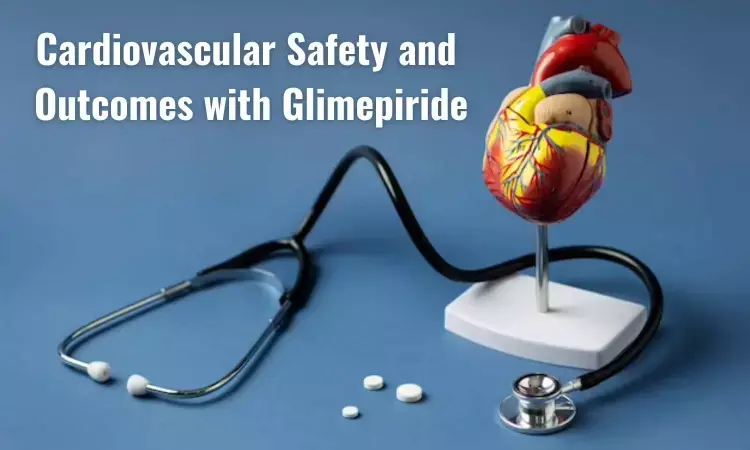- Home
- Medical news & Guidelines
- Anesthesiology
- Cardiology and CTVS
- Critical Care
- Dentistry
- Dermatology
- Diabetes and Endocrinology
- ENT
- Gastroenterology
- Medicine
- Nephrology
- Neurology
- Obstretics-Gynaecology
- Oncology
- Ophthalmology
- Orthopaedics
- Pediatrics-Neonatology
- Psychiatry
- Pulmonology
- Radiology
- Surgery
- Urology
- Laboratory Medicine
- Diet
- Nursing
- Paramedical
- Physiotherapy
- Health news
- Fact Check
- Bone Health Fact Check
- Brain Health Fact Check
- Cancer Related Fact Check
- Child Care Fact Check
- Dental and oral health fact check
- Diabetes and metabolic health fact check
- Diet and Nutrition Fact Check
- Eye and ENT Care Fact Check
- Fitness fact check
- Gut health fact check
- Heart health fact check
- Kidney health fact check
- Medical education fact check
- Men's health fact check
- Respiratory fact check
- Skin and hair care fact check
- Vaccine and Immunization fact check
- Women's health fact check
- AYUSH
- State News
- Andaman and Nicobar Islands
- Andhra Pradesh
- Arunachal Pradesh
- Assam
- Bihar
- Chandigarh
- Chattisgarh
- Dadra and Nagar Haveli
- Daman and Diu
- Delhi
- Goa
- Gujarat
- Haryana
- Himachal Pradesh
- Jammu & Kashmir
- Jharkhand
- Karnataka
- Kerala
- Ladakh
- Lakshadweep
- Madhya Pradesh
- Maharashtra
- Manipur
- Meghalaya
- Mizoram
- Nagaland
- Odisha
- Puducherry
- Punjab
- Rajasthan
- Sikkim
- Tamil Nadu
- Telangana
- Tripura
- Uttar Pradesh
- Uttrakhand
- West Bengal
- Medical Education
- Industry
Glimepiride use tied to better survival in patients with type 2 diabetes and chronic heart failure

China: Glimepiride use is tied to lower cardiovascular mortality in patients with type 2 diabetes (T2D) and chronic heart failure (CHF), findings from a prospective cohort study have shown.
"Long-term continuous glimepiride use is associated with fewer hospitalization and emergency visits for heart failure, better survival, and fewer hospitalization for stroke or acute myocardial infarction in patients with T2D and CHF," the researchers reported in the study published in the European Journal of Preventive Cardiology.
High-dose glimepiride was shown to confer greater cardiovascular protective advantages than low-dose glimepiride. The cardiovascular protective effect of glimepiride may be related to the epoxyeicosatrienoic acid (EET) level increase through soluble epoxide hydrolase (sEH) inhibition.
Previous studies have shown that patients with diabetes have poorer cardiovascular outcomes and prognosis and longer hospital stays than those without. Patients with T2D have a high incidence of clinical heart failure (HF) and subclinical left ventricular dysfunction. Although there is progress in treatment strategies for hyperglycemia, the possibility of HF caused by T2D remains higher with an increase in hyperglycemia. T2D is a risk factor for chronic heart failure events and increases mortality and morbidity risks in CHF patients. The choice of hypoglycaemic drugs may impact CHF prognosis and related cardiovascular outcomes.
Glimepiride, a third-generation sulfonylurea, is widely used for the treatment of type 2 diabetes because of its definite hypoglycemic efficacy, low price, convenient daily use, and relatively low hypoglycemic risk. It is suggested to have good cardiovascular safety. However, there is no clarity on whether glimepiride benefits clinical cardiovascular outcomes.
To fill this knowledge gap, Wu He, Huazhong University of Science and Technology, Wuhan, China, and colleagues aimed to evaluate the effects of glimepiride on the clinical outcomes of patients with T2D and CHF and provide theoretical evidence for the clinical application of glimepiride in these patients. They also predicted the molecular docking of glimepiride with sEH and assessed glimepiride's effects on the EET level to explore the potential mechanism.
The study included 21,451 inpatients with type 2 diabetes and chronic heart failure, including 638 who received glimepiride treatment and 20,813 who did not. Propensity score matching led to 509 pairs (glimepiride and non-glimepiride groups), and both groups were followed up.
Cardiovascular mortality, all-cause mortality, hospitalizations for acute myocardial infarction or stroke, and hospitalizations and emergency visits for heart failure were compared using Kaplan-Meier and Cox regression analyses.
The study led to the following findings:
- During follow-up, the all-cause mortality (adjusted hazard ratio [HR], 0.47), cardiovascular mortality (adjusted HR, 0.34), and hospitalizations for acute myocardial infarction or stroke (adjusted HR, 0.53), and number of hospitalizations and emergency visits for heart failure (adjusted HR, 0.42) were significantly lower in the glimepiride group; the conclusion remained similar in all subgroups.
- High-dose glimepiride use (2-4 mg/day) was associated with lower cardiovascular mortality than low-dose (1 mg/day) (adjusted HR, 0.55).
- Glimepiride exhibited good molecular docking with soluble epoxide hydrolase and increased the level of epoxyeicosatrienoic acid.
"The findings imply that long-term continuous glimepiride use is associated with fewer hospitalizations, better survival, and emergency visits for heart failure," the researchers concluded.
Reference:
He W, Yuan G, Han Y, Yan Y, Li G, Zhao C, Shen J, Jiang X, Chen C, Ni L, Wang DW. Glimepiride Use is Associated with Reduced Cardiovascular Mortality in Patients with Type 2 Diabetes and Chronic Heart Failure: A Prospective Cohort Study. Eur J Prev Cardiol. 2022 Dec 27:zwac312. doi: 10.1093/eurjpc/zwac312. Epub ahead of print. PMID: 36573717.
Dr Kamal Kant Kohli-MBBS, DTCD- a chest specialist with more than 30 years of practice and a flair for writing clinical articles, Dr Kamal Kant Kohli joined Medical Dialogues as a Chief Editor of Medical News. Besides writing articles, as an editor, he proofreads and verifies all the medical content published on Medical Dialogues including those coming from journals, studies,medical conferences,guidelines etc. Email: drkohli@medicaldialogues.in. Contact no. 011-43720751


